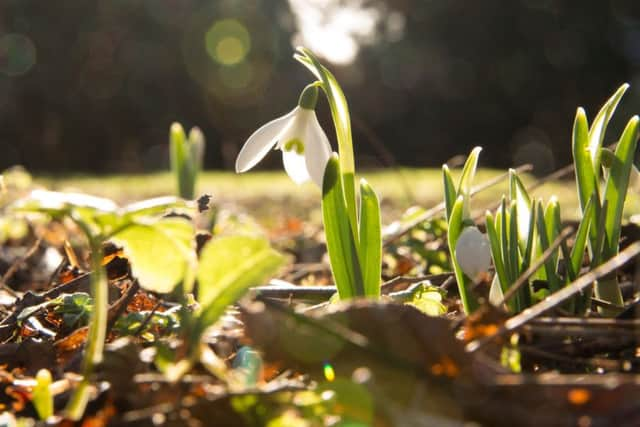Forget the dark nights, spring has sprung


Snowdrops, lesser celandine and other seasonal beauties are already on the march and have been recorded on the Woodland Trust’s Nature’s Calendar project.
So far in 2017 the conservation charity has received sightings, across the UK, of 32 different indicators of spring; including snowdrops at 234 locations, 129 records of hazel catkins and even 48 records of song thrush singing.
Advertisement
Advertisement
Although spring is definitely in the air, the trust has received fewer records than this time last year, which is explained by colder temperatures in January 2017 compared to 2016.
In Northern Ireland the earliest flowering snowdrop recorded this year was on 4 January (at Newtownards in Co Down). Last ‘spring’ the earliest snowdrop was particularly early and was in fact recorded on 28 December 2015 (near Kircubbin, Co Down).
According to the charity, while the recent spate of cold weather may slow the advance of spring, it causes less of a problem than a late cold spell, when many more species may be flowering or awake from hibernation – as happened in 2013.
Judith Garforth, Woodland Trust citizen science officer, said: “Recording signs of the changing seasons on Nature’s Calendar is hugely valuable to scientists and researchers who monitor its impact on nature. Although we’re seeing signs slightly later this year, we expect to see many more as things finally begin to warm up.”
Advertisement
Advertisement
Patrick Cregg, the director of the Woodland Trust in Northern Ireland, said: “The recent wintry weather may make you think it’s too early to look for signs of spring, but the clues are out there nonetheless and this is a great time to wrap up and get out and about.
“Look for lesser celandine flowering, hazel flowering, or even record your first lawn cut.
“We really need more people across Northern Ireland to play a part, and you don’t have to be an expert.
“Your records – no matter how few – will make a valuable contribution to scientific research.”
Advertisement
Advertisement
By recording natural seasonal signs, thousands of people have enabled Nature’s Calendar to become a vital survey into how climate change is affecting UK plants and wildlife.
Find out more at www.naturescalendar.org.uk